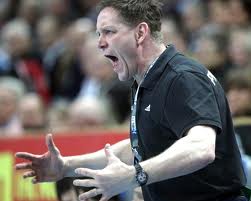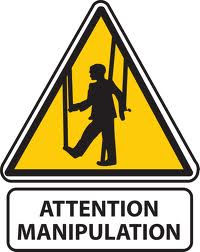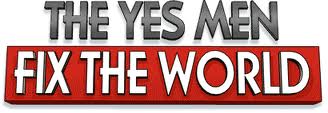My colleague John Ryan admits that he does not follow football very closely, so he may have missed much of the commotion leading up to the recent FIFA Election Congress, last year’s decision to award Russia and Qatar the rights to organize the 2018 and 2022 World Championships, and the last 30 years of constant accusations or rumors of rampant corruption. So John is prepared to declare the IHF Champion of corruption and mismanagement. I disagree: FIFA is in a class by itself! But our readers should feel free to weigh in with their opinions on this sordid comparison.
I have done my share of reporting about IHF power abuse and corruption, so I will only quickly remind about some of the stories here without repeating any details. In 2008, the IHF President personally figured in a ‘less than flattering way’ in terms of personal involvement in the match fixing in the Asian qualifications for the Olympics. Last year, media reported about a personal contract for the President to the tune of 600.000 Euro, in return for the awarding of the TV rights contract to Sportfive at the time. Soon thereafter, persistent rumors were heard about illegitimate procedures regarding the awarding of the subsequent TV rights contract to UFA. IOC President Rogge was reported to be less than pleased.
Then came the easy decision by the IHF Council to change the President’s status, from that of an elected official serving as a volunteer, to that of a full-time paid IHF employee at a salary in the order of US$ 500.000. Neatly, this coincided with a proposal for the Council members to have their own remuneration quadrupled or more. The two very competent office managers, the Head of Sports and the Head of Administration, were eased out and replaced by President himself and his long-time crony and compatriot as the persons running the IHF Office and supervising all activities.
First proposed for the postponed 2010 Congress and then again for the recent 2011 Congress, came a set of proposals for By-Law changes that would have legitimized a major power grab for the IHF and the President personally, at the expense of handball’s global stakeholders. Fortunately, and almost surprisingly, there were enough alert Congress participants who saw through this attempt and managed to put a stop to it. Virtually unchecked decision-making authority and control over the financial transactions would otherwise have been the result. I understand John Ryan, if he feels that this list from just the last few years is ‘impressive’ enough to make the IHF a strong contender…
When looking at the record of FIFA one must backtrack a bit and provide some background. Former President Havelange came into power in 1974, essentially through the ‘machinations’ of the then Adidas boss Horst Dassler, who was using his position in the world of sports business. Dassler later also got his protégé Sepp Blatter into FIFA as the Secretary General. Blatter soon began to cast his eyes on the presidency, and it became apparent that he had acquired the necessary ‘business acumen’ to achieve that promotion. In the meantime, the sports marketing firm started by Dassler, ISL, had gained prominence, and it became a ‘helpful partner’ to FIFA, especially in the context of selling the TV rights for the World Cup.
Later on, in a major bankruptcy scandal and court case, it became clear that ISL, apart from getting commissions on contracts for TV and marketing rights, apparently had served as the middleman in the handling of bribes from deal makers around the world to senior FIFA officials to the tune of 140 million SwFrs. While the IHF TV rights for a 4-year period of World Championships currently are in the order of US$ 80 million, the FIFA TV rights went from about US$1.2 billion in 2002 and 2006 to about 2.5 billion in 2010. Other marketing rights were worth around US$ 1 billion. So it is not surprising if the remunerations for a much larger group of FIFA executives dwarf those of the IHF Council members, and if the ‘expense accounts’ and outright bribes add up to rather astronomical amounts. And of course, the President has an essentially unlimited account to spread around in continental and national federations for them to use for special projects… But do not get the impression that the enormous revenue mainly goes to development in poor countries; about half of the US$ 1.5 billion net profit from the 2010 World Cup was set aside for FIFA’s own administrative and operational expenses. A nice state of affairs for an organization that Is legally recognized as a charity(!) and insists on total tax exemption wherever it organizes a World Cup.
Naturally, it is not surprising if virtually every member for a key position in FIFA is able to bring accusations against rivals and their supporters. It is likely to be a hard job in FIFA circles to figure out who are the ones who do not have a skeleton in the closet. And of course, the best chances of staying one step ahead in the FIFA power struggle is to make use of the various resources that come with the presidency and to hold on to that position. So the one person who seemed to be a plausible opponent in Blatter’s bid for re-election, Bin Hammam from Qatar, found himself being forced to withdraw and face a suspension at the last moment, following indications that money in support of his candidacy might been thrown around a bit too openly. Remarkably, it also caused another notorious executive, Jack Warner from Concacaf to be caught up in the same affair, an amusing fate for someone always known as a Blatter crony. There was then worldwide pressure for FIFA to postpone the election but, needless say, Blatter wanted none of that. In a bizarre ‘press conference’ he dismissed any notion of a crisis.
In recent months, FIFA has also been plagued by suspicions and accusations that the Executive Committee’s voting last December regarding the hosting of the 2018 and 2022 World Cups may not have been above board. Of course, some of the ‘dirt’ may have something to do with sore losers. But the choice of Russia and Qatar as hosts will, almost by definition, bring up speculation that money or some other form of coercion may have played a role. And several FIFA executives remain suspended after the discovery of clear evidence that bribes were solicited and/or received. Some of those who lost out to Qatar in the bid for 2022 seem to feel some renewed hope, but it is difficult to prejudge if something as drastic as a new vote will be found to be justified. At least it has caused a change for 2026 and onwards, in the sense that the entire FIFA congress will do the voting.
All in all, one could say that the amount of money involved in the legitimate and not so legitimate business transactions regarding FIFA are at a level almost beyond the imagination of the world of handball. The complete cynicism surrounding the FIFA operations is also much more deep-rooted. People shrug and talk about the ‘cost of doing business’. Moreover, the big money, and the amount of PR and prestige involved in a football World Cup, inevitable bring in the really big names also in government circles. Another major difference from the IHF situation, where the power abuse and soliciting of votes and favors is less overt and involves fewer people, is that in FIFA the corruption really seems to permeate the entire organization. The IHF President does not conceal that the FIFA President is a close friend and role model, but I think he will have to admit to playing in a smaller league.
But the bottom line is that both organizations, each at their level, are affected by mismanagement and corruption to an extent that simply should not be tolerated. So the question is what can be done. FIFA’s Blatter perennially tries to convince the world, every time he has been re-elected, that FIFA will be able to get back on track on its own and through his leadership…. The latest gimmick for convincing people is to appoint a ‘solution committee’. To lend credibility, Blatter seems to have in mind appointing Henry Kissinger, a known football fan, as the person in charge. (After having once spent some time discussing handball rules with Kissinger at the Olympics, I know he also has a familiarity with handball, so perhaps he could do double duty…).
More seriously, I am more prepared to pick up on statement from IOC’s veteran and ‘truth sayer’ Richard Pound. He commented in public last week that perhaps it would be time for the decent and dissatisfied football nations to withdraw from FIFA and establish an alternative. As he noted, this has been done successfully before in other sports. He really felt that the reputation of FIFA and of football as a sport was being damaged and that something needs to be done. As is known, IOC does not interfere in such matters but expects the global family in each sport to clean up its own act. And then it is up to IOC to recognize which is the entity that deserves to represent and manage the sport in an honest, democratic and effective manner. Perhaps something to consider for those handball countries who really are the drivers, developers and revenue creators in our sport!












